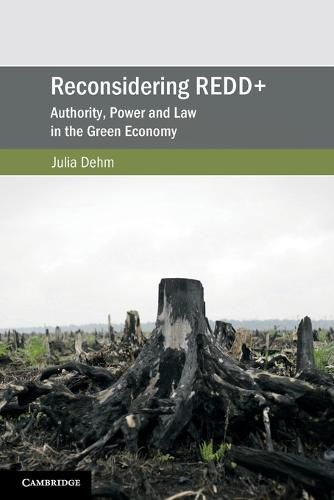Readings Newsletter
Become a Readings Member to make your shopping experience even easier.
Sign in or sign up for free!
You’re not far away from qualifying for FREE standard shipping within Australia
You’ve qualified for FREE standard shipping within Australia
The cart is loading…






In Reconsidering REDD+: Authority, Power and Law in the Green Economy, Julia Dehm provides a critical analysis of how the Reducing Emissions from Deforestation and Forest Degradation (REDD+) scheme operates to reorganise social relations and to establish new forms of global authority over forests in the Global South, in ways that benefit the interests of some actors while further marginalising others. In accessible prose that draws on interdisciplinary insights, Dehm demonstrates how, through the creation of new legal relations, including property rights and contractual obligations, new forms of transnational authority over forested areas in the Global South are being constituted. This important work should be read by anyone interested in a critical analysis of international climate law and policy that offers insights into questions of political economy, power, and unequal authority.
$9.00 standard shipping within Australia
FREE standard shipping within Australia for orders over $100.00
Express & International shipping calculated at checkout
In Reconsidering REDD+: Authority, Power and Law in the Green Economy, Julia Dehm provides a critical analysis of how the Reducing Emissions from Deforestation and Forest Degradation (REDD+) scheme operates to reorganise social relations and to establish new forms of global authority over forests in the Global South, in ways that benefit the interests of some actors while further marginalising others. In accessible prose that draws on interdisciplinary insights, Dehm demonstrates how, through the creation of new legal relations, including property rights and contractual obligations, new forms of transnational authority over forested areas in the Global South are being constituted. This important work should be read by anyone interested in a critical analysis of international climate law and policy that offers insights into questions of political economy, power, and unequal authority.